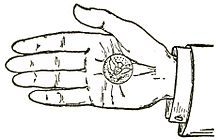Wikisource:News/2013-07

Excerpted and adapted from Wikimedia Foundation elections 2013/Results on Meta-Wiki
The 2013 Wikimedia Board Election Committee announces the results of the 2013 Board Elections.
These results were certified by the Board of Trustees.
| Board of Trustees | Funds Dissemination Committee (FDC) | FDC Ombudsperson |
|---|---|---|
|
|
|
Translation namespace
[edit]The English Wikisource has long accepted user-made translations of works in other languages. This used to be due to the lack of an agreed policy on the matter. In March 2013, AdamBMorgan opened a request for comment in order to define the details about the acceptance of derivative works.
There is consensus that:
- user-made translations are to be hosted in a new Translation namespace,
- there should only be a single translation to English per original language work,
- a scan-supported original language work must be present on the appropriate language Wikisource, where the original language version is complete at least as far as the English translation (this point has been challenged because local copyright policies sometimes make impossible to host works on the proper language subdomains. Some have suggested that these works belong to the multilingual Wikisource),
- where previously existing and accepted works somehow no longer meet the new criteria for inclusion, some degree of reasonable accommodation to keep such works should be sought first and foremost whenever possible.
No clear definition and measure of needed language competence was achieved: The general expectation for accuracy of translation is the same as it is at any sister wiki work. No clear consensus was reached on requiring a (semi-)formal project for each translation.
On June 22, 2013, Billinghurst requested the creation of the new Translation namespace.
There has been some discussion about the following technical facets. (original pages: 1 • 2)
- Just like the main namespace, the Translation namespace should have talk pages and subpages.
- The Translation namespace should be treated as a content namespace and therefore be in the default search.
- User-made translations on the English Wikisource should still use the Index and Page namespaces. The scans are in the original language, but the side-by-side transcriptions are actually the English translations. Then the translations are transcluded into the Translation namespace.
- A new header template is being designed for the Translation namespace.
- If main-namespace pages were entirely deleted when moving content to the Translation namespace, a lot of links around the Internet would become dead. This can be avoided by placing either soft or "normal" redirects onto those main-namespace pages. The latter option is against the current practice ("no redirects between different namespaces") and would require community agreement.
Proofread Page changes
[edit]
The Proofread Page extension that powers the proofreading process on all Wikisources is being refactored as part of the Google Summer of Code 2013. The primary purpose of this is to clean up the code and make the program modular (so it can more easily be extended in the future), while also documenting it properly. The project will also update the cleaned up extension to make it compatible with the Visual Editor (currently already deployed for testing on English Wikipedia).
This work being done by Aarti Kumari Dwivedi (User:Rtdwivedi), mentored by Thomas PT (User:Tpt) and Thibaut Horel (User:Zaran) of French Wikisource. French Wikisource is the spiritual home of the extension, which was created and now maintained by French developers. Dwivedi is currently resident in Roorkee, India, where she is studying at the Indian Institute of Technology Roorkee.
Some changes have already been made to the extension. The canonical names "Index" and "Page", for the appropriate namespaces, have been extended to all Wikisources; although local alternatives can be added and used as well. This brings them into line with the default MediaWiki namespaces and will allow easier sharing of Javascript gadgets. Work on the Pagespace zoom function is scheduled for early July, with Visual Editor work later in the month and in August.
Some bugs are expected during this process. For example, the magic word {{{pagenum}}}, which is used during proofreading to automatically extract the page number from the list on the Index page, ceased to function in late June. At time of writing, this error is expected to be fixed at the beginning of July. Testing coverage has been increased to avoid as many bugs as possible but more may occur as work continues.
The refactoring is scheduled to be complete by the end of September 2013.
Vision development project: Inter-project links
[edit]
The Wikisource vision development project, successfully funded by the Wikimedia Foundation via an Individual Engagement Grant, has proceeded with the interproject links interface concept reported in the May issue. User:Tpt has created a prototype content card that can be used to hold inter-project data, which would be potentially derived from Wikidata.
The current prototype creates an icon following the page title, which in turn displays a content card (see illustration) when the mouse cursor hovers over it. At present this just contains a description and a link to Wikimedia Commons. However, in future, it may be possible for additional project data to be held on Wikidata, which could fill in links to every project, as well as the amount of content. For Wikisource, this could include the number of an author's works held in our collection. Less intrusive, alternative icons have been suggested for the final version, if it is approved. Some of these suggestions would also unobtrusively display the quantity of content without the need for a mouse-hover.
The icons and content card will be more prominent than the current system on many projects of putting inter-project links in the footer, while still keeping them discreet enough to avoid inconveniencing users who are not interested in them. Wikidata support for Wikimedia projects, currently limited to to Wikipedia articles across language subdomains, will need to be expanded before this project can be properly tested.
Wikisource used towards plagiarism detection in Arabic
[edit]Building Arabic Corpora from Wikisource (PDF) by Imene Bensalem, Salim Chikhi (Constantine 2 University, Algeria) and Paolo Rosso (Universitat Politècnica de València, Spain) describes a method of creating text corpora for intrinsic (ie. without comparison with genuine, external sources) plagiarism detection by using texts from Arabic Wikisource.
Intrinsic plagiarism detection searches documents for changes in writing style. In order to create computer assisted detection tools, a text corpus (or corpora) is required. These need to be long texts with single authors, into which excerpts from other texts can be inserted to simulate plagiarism. These corpora exist in English but there are few in Arabic.
Arabic Wikisource was chosen because it contains books which are of sufficient length and have identified authors (to ensure the same style before modification and to avoid inserting excerpts from the same author) and subjects (to better simulate plagiarism by maintaining the same subject). Additionally, the authors wish to make the resulting corpus available to the public, so it was necessary to use copyright-free sources. Wikisource is the only available resources that provides this. Poetry and dictionaries were omitted (because their style and format are too different to be useful for analysing prose), as were religious texts (which often contain many quotations) and legal documents (which often have many authors).
There are problems with using Wikisource, however, as the project does not provide plain texts. The paper mostly describes a tool to clean out the wiki-markup (including templates and other features) while retaining necessary metadata.
Featured text for July 2013
[edit]
This month's featured text is Magic, a 1910 handbook about stage magic by Ellis Stanyon. (Main page template)
Stanyon was one of Britain's finest sleight-of-hand exponents in the twentieth century. In this book he gives detailed instructions on how to perform well-known illusions, as well as many new ones of his own invention. There is also a chapter on Shadowgraphy.
There are one or two leading principles to be borne in mind by any one taking up the study of magic. The first and foremost is, Never tell the audience what you are going to do before you do it. If you do, the chances of detection are increased tenfold, as the spectators, knowing what to expect, will the more readily arrive at the true method of bringing about the result.
It follows as a natural consequence that you must never perform the same trick twice in the same evening. It is very unpleasant to have to refuse an encore; and should you be called upon to repeat a trick study to vary it as much as possible, and to bring it to a different conclusion. There will generally be found more ways than one of working a particular trick. It is an axiom in conjuring that the best trick loses half its effect on repetition.
Collaborations for July 2013
[edit]The Proofread of the Month for July 2013 is about Geography. The first selected book is Maury’s New Elements of Geography for Primary and Intermediate Classes (1907) by Matthew Fontaine Maury. It is a teacher’s classroom textbook and includes lessons about basic concepts of Geography (like direction and climate) and the continents.
The Maintenance of the Month task for July 2013 is Works with no copyright tag. According to the Copyright policy, every work should have a tag to indicate its copyright status, but, regrettably, users who have added works to Wikisource have not always used one.
| trademarks | The Wikimedia Foundation is legally responsible for maintaining and protecting the trademark rights through their policy and practice. They also want to make it as easy as possible for community members to use the trademarks to advance their mission.
How should the Wikimedia Foundation employ their trademarks for community members, movement organizations, and third parties? |
| privacy policy | The current Wikimedia privacy policy has not changed since 2008, and it is time to adapt it to the changing legal and technological landscape.
What do (not) you like about the current policy? What do you think should (not) be in the new policy? What community values should the new policy embody? Any concerns about past or current Wikimedia Foundation privacy practices? Any recent US or international privacy trends that you want us to consider? |
| detailed edit counter | Currently, any editor must opt-in to allow other editors to see additional statistics for him or her. This used to be due to a law in Germany, where the Toolserver is located. Since everything from the Toolserver is being migrated to the Wikimedia Labs (in the US), this law is not relevant anymore.
Should the opt-in be kept, replaced with an opt-out, or removed completely? |
| Incubator projects | Beta Wikiversity was created to develop guidelines for further potential uses of the site and to host content in languages which do not have their subdomains yet. Only the latter purpose is still valid, so Beta Wikiversity could move to the Incubator.
Should Beta Wikiversity move to the Incubator? At first, the proposal included moving the multilingual Wikisource, too, but it was modified by the proposer as this would be highly difficult. |
Four administrators were confirmed in June 2013:
- Beeswaxcandle (talk | contributions)
- BirgitteSB (talk | contributions)
- Hesperian (talk | contributions)
- Theornamentalist (talk | contributions)
Three administrators will have their confirmation discussions in July 2013:
- GrafZahl (talk | contributions)
- Inductiveload (talk | contributions)
- ResidentScholar (talk | contributions)
Milestones
[edit]- On 21 June the French Wikisource reached 500,000 proofread pages and German Wikisource reached 300,000 text units (content pages).
- On 22 June English Wikisource reached 120,000 validated pages.
Notes
[edit]- A Wikisource User Group has been proposed by the Wikisource vision development project to improve communication within the Wikisource community across different languages.
- WebFonts has been replaced with Universal Language Selector. The change temporarily broke {{blackletter}} as the blackletter font itself (UnifrakturMaguntia) was not transferred. This was corrected in the subsequent tech update.
